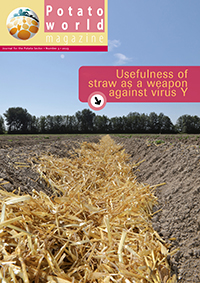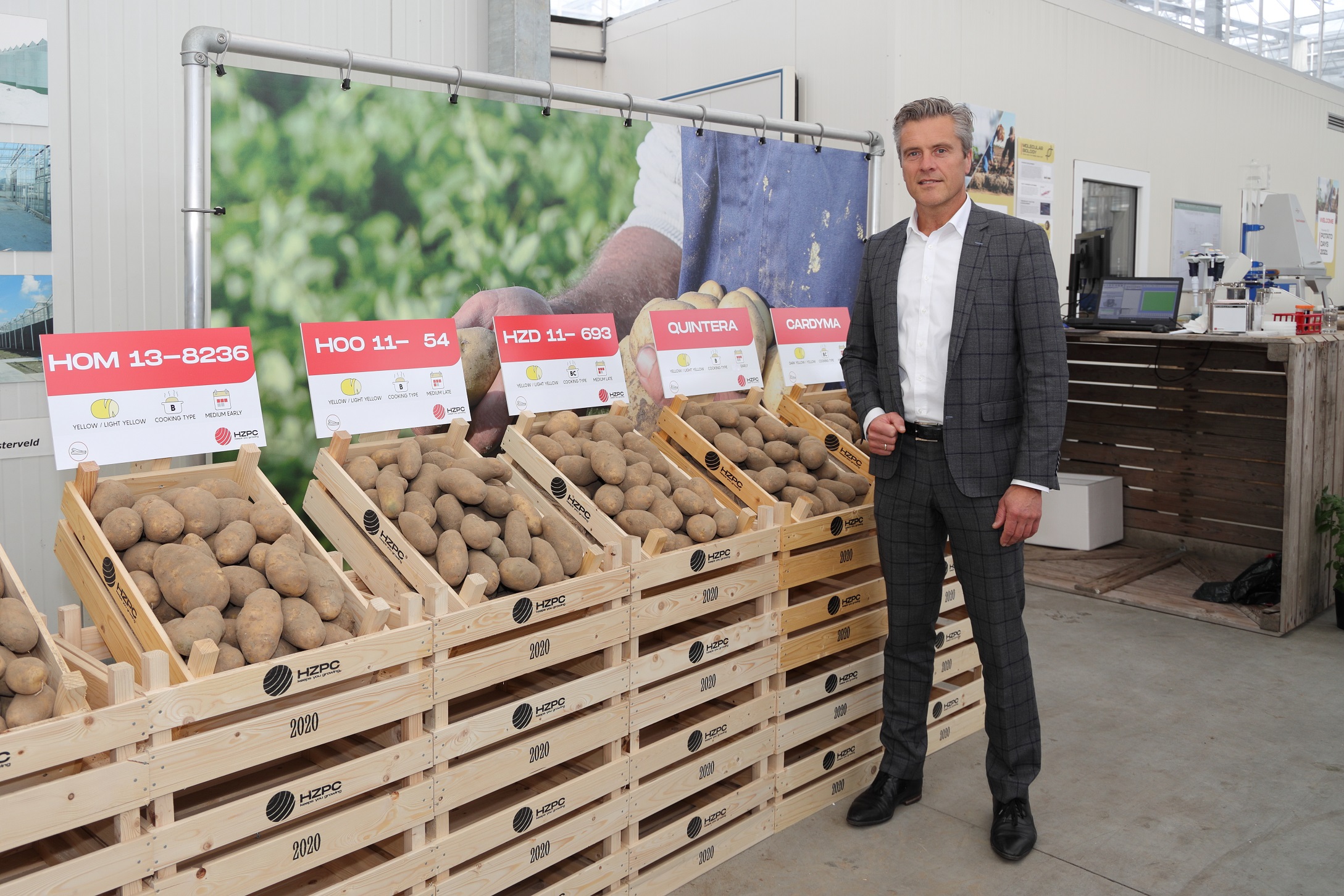Already a subscriber? Activate your premium account

Potatoworld Magazine

During the Potato Variety Days 2021, we asked participating breeding companies about the key focus of their breeders in their search for new varieties. In this blog post you may read the answer given by Robert Graveland, Director of HZPC Research, Metslawier (NL):
The content of this blog originates from the article on the Potato Variety Days 2021 published in PotatoWorld magazine 2022/01.
By Zindziwe Janse, Jaap Delleman and Leo Hanse.
During the Variety Show, HZPC wants to convey two messages: ‘For the clonal breeding process, the focus today is on the Even Greener concept, the translation of sustainability. As far as we’re concerned, that stands for robust varieties with yields and resistances. The second message is about the future of diploid hybrid breeding’, says Robert Graveland, Director at HZPC Research.
‘You can think of traditional breeding as repeatedly throwing two crystal glasses on the floor and then gluing all the shards together again to form a new glass. With hybrid breeding you have a beautiful glass on the table that you can improve in many ways without breaking it, Graveland explains expressively. The focus in breeding remains the same at HZPC for both systems and is driven by the market demand. ‘Our marketing department is constantly in contact with its customers and develops profiles, on the basis of which we develop our varieties. This ultimately comes down to more kilos per hectare with less input. You can’t make a greater sustainability impact than that. Also, our salesmen need to translate that into what the world will be like in 2035, and what steps we’ll have to take to get there’, he says. ‘Because of its robustness, clonal breeding plays a crucial role in today’s world. With hybrid diploid breeding, however, you can improve varieties more specifically and faster, and thanks to the seeds, distribute more easily and build up a market faster. In professional markets too, we certainly see a role for hybrid breeding. We’ll have the prototypes this year for the subtropical markets, Central Africa and South-East Asia; the entry to the market there is planned for 2025/2026. Around 2030, we’ll have the prototypes for the modern European and North American high-tech markets, so we’ll be able to market them commercially there between 2030 and 2035. We can certainly see this shift happening on the breeding side, although seed potatoes may still be needed in 2035. But the long-term outcome is simply that the potato will become a seed crop. This is entirely in line with our vision and mission: “to contribute to the development of food grown responsibly for the ever-growing world population”, concludes Graveland.
Want to keep reading about the Potato Variety Days?
In the run-up to the event we published an e-book that you can download here!
Events
©2015 - 2024 Potatoworld | Webdesign and realisation COMMPRO